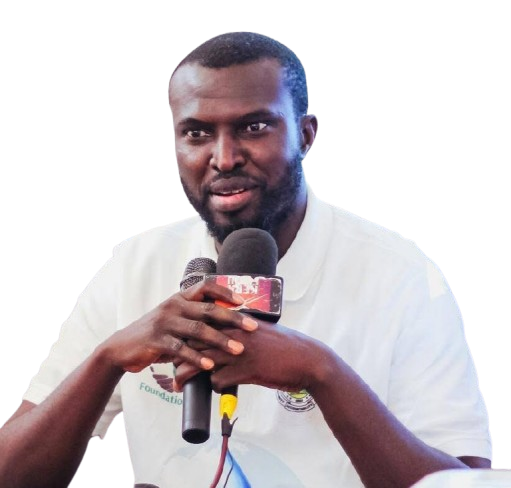Gambiaj.com – (BANJUL, The Gambia) – In a country still recovering from the scars of authoritarian rule, recent remarks by Brikama Area Council Chairman Yankuba Darboe have sparked a growing chorus of concern among political observers, legal experts, and civil society groups.
Speaking at a political rally in Farato, the outspoken United Democratic Party (UDP) official called on supporters to prepare to install the party’s presidential candidate “by force” if the party wins the 2026 election. “If we vote, we should not wait for the IEC. Let’s go to the State House, install our father by force. If soldiers are there, we can snatch them. People’s power is what is going to change this country,” Darboe told the crowd.
Though he stopped short of explicitly rejecting the electoral process or accusing the Independent Electoral Commission (IEC) of bias, the message behind his words was unmistakable: a call for direct action to override or preempt institutional procedures in the event of perceived victory.
Tensions Beneath the Surface
This is not the first time Chairman Darboe has courted controversy with fiery, confrontational rhetoric. Earlier this year, he faced criticism for making tribally charged comments in an interview with a Brikama based TV, insinuating that loyalty to the UDP was synonymous with a particular ethnic identity.
In that incident, he invoked Mandinka pride and warned rivals in statements many deemed divisive and dangerous in a multi-ethnic democracy still healing from the wounds of the Jammeh era.
Together, these comments paint a portrait of a political actor who appears increasingly comfortable invoking identity, populism, and extra-institutional power to galvanize his base — a combination some analysts warn could destabilize the fragile democratic gains The Gambia has made since 2016.
Supporters See a Hero; Critics See a Threat
The Gambia’s political landscape remains volatile as the 2026 election approaches. While the country has held two relatively peaceful national elections since the end of Yahya Jammeh’s 22-year dictatorship, the culture of political tolerance and trust in public institutions remains tenuous.
Chairman Darboe’s statement calling for citizens to “install our father by force” has been interpreted by some as undermining the IEC’s authority and inciting supporters to reject the principle of orderly transitions.
“This type of rhetoric blurs the line between legitimate political mobilization and incitement,” said a political analyst who asked not to be named. “It appeals to a sense of popular grievance, but the danger is that it erodes public confidence in lawful processes and creates a climate ripe for post-election chaos.”
To many UDP loyalists, Darboe is a bold and unapologetic voice challenging what they perceive as systemic efforts to deny their party a rightful claim to power. His talk of “people’s power” echoes historical narratives of liberation and grassroots resistance — a rhetoric that resonates deeply among those who feel sidelined or unheard.
But critics caution that populism, especially when laced with threats of force and tribal undertones, can easily spiral into instability.
Madi Jobarteh of the Edward Francis Small Centre for Rights and Justice said, “The IGP Must Hold Yankuba Darboe Accountable. No one should mess the 2026 elections,” he said.
Yankuba Darboe’s increasingly militant language highlights a broader challenge The Gambia faces: how to channel political energy into lawful, inclusive, and peaceful participation.
As the 2026 vote looms, political leaders across all parties must decide whether they will fan the flames of distrust or commit to preserving the democratic space that so many Gambians sacrificed to create.
Bottom line: The promise of “people’s power” is noble — but in a constitutional democracy, it must work through institutions, not over them.










